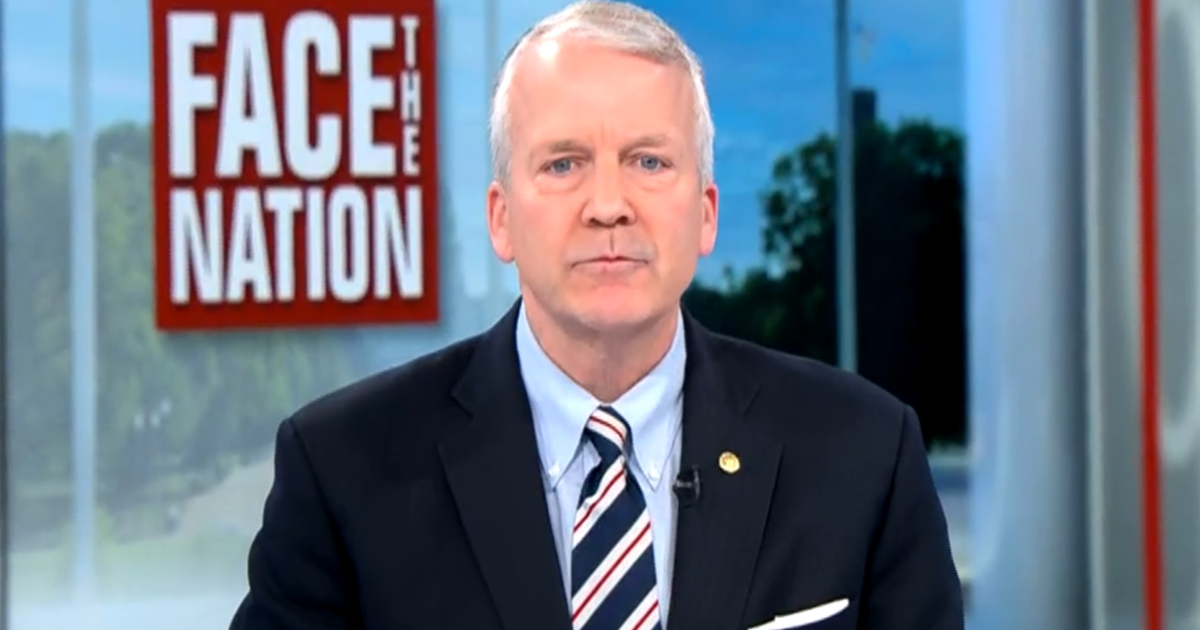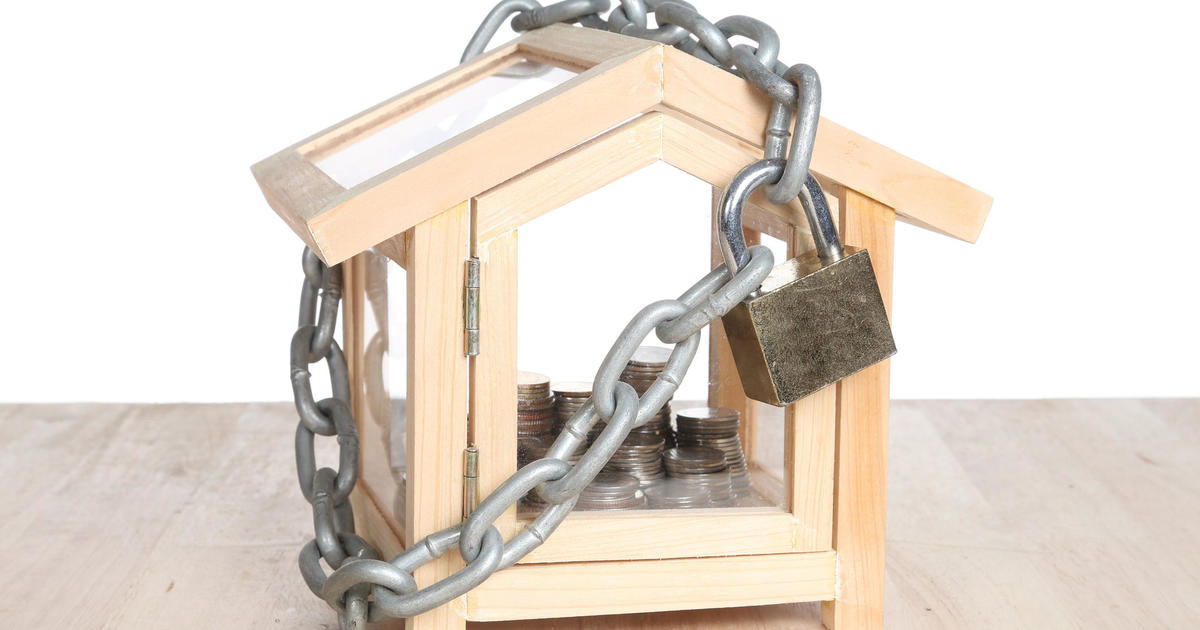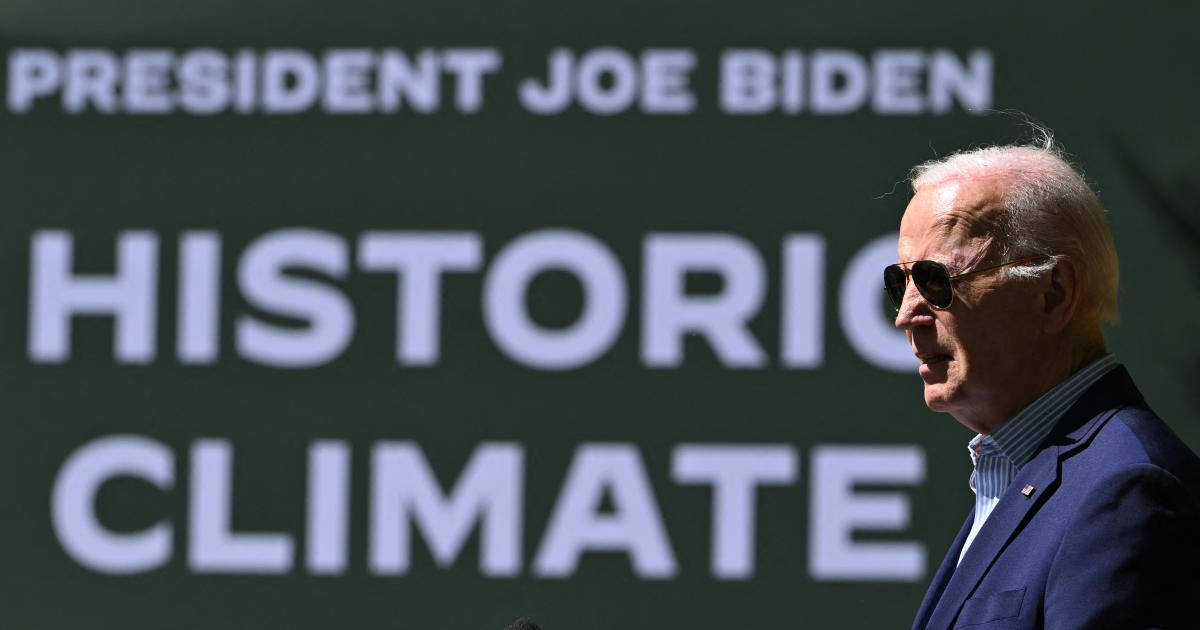Swing states 2020: From economic "desperation" to "97% recovered"
It is conventional wisdom to note that next week's presidential election will hinge largely on the state of the nation's economy. In reality, the outcome will turn more on local economic conditions — the places, after all, where Americans go to work, run businesses and spend money — in a handful of states that President Donald Trump and his Democratic challenger, Joe Biden, are desperate to win.
Three of those states — Ohio, Georgia and Arizona, viewed as toss-ups by the CBS Battleground Tracker — reveal major differences in how quickly different parts of the country are rebounding. Although those states together have regained more than 1 million jobs since the broader economy bottomed out in April, some areas continue to struggle while others are proving resilient. A total of 45 electoral votes are at stake between the three states.
As Jim Baird, chief investment officer at Plante Moran Financial Advisors in Portage, Michigan, says of the broader economy: "There is something there for everyone. If you are a supporter of the president, you say, 'The first three years was on a positive path, and look how quickly it's bounced back.' But if you are on the other side, you say, 'Yes, it's come back, but there are still 11 million unemployed Americans. We need to do a better job."
Where there may be more consensus is that bitter partisanship in Washington is making an epic economic crash even worse. Jobless benefits are expiring for millions of workers, especially hurting regions where unemployment remains even higher than the already elevated national average of 7.9%.
Across the U.S., some 4.5 million workers have dropped out of the labor force since February, neither working nor looking for a job. That's hit some states, such as Iowa, especially hard.
Meanwhile, any chance of lawmakers agreeing on another round of emergency federal relief must now wait until after November 3 — or even into next year — with senators not slated to reconvene until after after the election. An even greater unknown: How COVID-19, now surging again around the U.S., will evolve, as well as the race to find a cure.
Ohio: "We are seeing this desperation"
Electoral votes: 18
Latest unemployment rate: 8.4%
Latest weekly new unemployment claims: 17,671
Gross state product (2020 estimate): -4%
Mr. Trump stepped onto the stage at a rally in Circleville, Ohio, on Saturday with a message for voters in what experts view as a critical state for the election: "We will continue to bring back your jobs."
By that measure, Ohio still has a long way to go. Buckeyes took a beating in the recession caused by the coronavirus, with the state's unemployment rate soaring to nearly 18% in April, a historic high. Since then, joblessness has fallen to 8.4%, but that remains higher than for the U.S. overall and is more than double the 4.1% unemployment rate that Ohio enjoyed in February just before the pandemic began shutting down the economy.
Even before the crisis, however, many Ohioans were already struggling to find good-paying jobs, said Hannah Halbert, executive director of Policy Matters Ohio, a nonpartisan think tank. Six of Ohio's 10 most common occupations — such as cashiers and home health aides — don't pay enough to support a family of three without food aid, the group has found.
"There was no cushion for a lot of people," Halbert said. "When we had the pandemic and the necessary shutdowns, it wiped people out. We are seeing this desperation from a lot of people as the stimulus programs wind down."
That could play against Mr. Trump, who campaigned four years ago on a promise to bring back manufacturing jobs to the U.S.. It boosted him in Midwestern swing states such as Michigan, Ohio, Pennsylvania and Wisconsin, where the auto, steel and other industries remain a pillar of the local economy.
But manufacturing firms in these four states actually cut jobs by 0.5% in 2019, while employment in the sector grew 0.7% in the rest of the country, according to a September study from the Century Foundation and Policy Matters Ohio.
Ohio's gross state product — the measurement of its industries' production — is slated to slump more than 4% to $587.9 billion this year, according to Moody's Analytics. It won't surpass its 2019 level until 2022, the analytics firm forecasts.
"Lordstown is gone," Halbert said, referring to the former General Motors plant that President Trump sought to save. "It's hard to look at that plant and that community and say that there was promise that was delivered on."
Georgia: "97% recovered"
Electoral votes: 16
Latest unemployment rate: 6.4%
Latest weekly new unemployment claims: 44,892
Gross state product (2020 estimate): -5%
Savannah, Georgia, popularly known as America's "most haunted" city, was literally a ghost town in March as COVID-19 spread. Non-essential businesses were shut. Tourists stayed away. Old Savannah Tours, which has been giving guided trolley rides for more than four decades, decided to temporarily call it quits, furloughing all 155 of its workers.
Now the tour guides are mostly back, as are the trolleys, though with social distancing limits on the number of passengers. Aided by a $350,000 Paycheck Protection Program loan — the emergency federal program launched to help small businesses — the company has rehired 113 of its part- and full-time workers, including its Forrest Gump impersonator.
"We are 40% to 50% less than last year's numbers at the same time, but it appears pretty steady now," said Jim Lucus, chief financial officer of Old Savannah Tours. "We have our very busy days. Walk around the streets today and people are out. It's a normal day for the current situation."
If elections turn on the state of the economy, that could be good news for Mr. Trump in Georgia. "We are 97% recovered," said Jeffrey Humphreys, who is the director of the Simon S. Selig Jr. Center for Economic Growth at the University of Georgia. "We've had a very strong bounce."
Georgia's unemployment rate hit nearly 12% at the start of the lockdown. It has since dropped to 6.4%, a percentage point and a half lower than the national average, but still more than double the state's January rate. Weekly new unemployment claims, which had been as high as nearly 400,000, have dropped to just over 44,000. Consumer spending rose 5.5% in September compared with the year-ago period, as measured by sales tax revenue, while other big states like New York and Texas saw big drops.
Team Roofing is another small business that has started hiring again as Georgia's economy rebounds. The company, which repairs and constructs residential and commercial roofs, said it saw only a brief slowdown from its business customers at the beginning of the pandemic. Now Team Roof, which has 62 full-time employees and works with hundreds of contractors, said it is as busy as it ever was.
Construction of new homes have jumped in Georgia in the past three months, and employment in the construction business is nearly back to where it was at the start of the pandemic.
"Every month there has been growth," said Melody Vaillencourt, head of marketing for Team Roofing, which has six offices in Georgia. "When you are in your home more, you are more likely to see things you want fixed. It's also more convenient to schedule appointments and get work done."
To be sure, many local businesses are still struggling. Elspeth Brotherton, who owns Highland Yoga, which has four locations around Atlanta, has had to let go all 30 part-time teachers at Highland. The company has been able to reopen, but Brotherton said "pretty extreme" capacity restrictions makes it hard to turn a profit in the fitness business.
"We do need more stimulus," Brotherton said. "I know many small business owners that are just hanging on."
Indeed, the number of small businesses open in Georgia is still down 17% from pre-pandemic levels, according to the scheduling software company Homebase. But that's better than the nation as a whole.
Humphrey of the University of Georgia said the state's swift recovery doesn't stem from its ending the lockdown earlier than other states, contrary to popular belief. Rather, he points to Georgia's robust warehousing and logistics industry, which was already growing faster than the rest of the U.S. before the pandemic and which is ever more critical given the surge in online shopping as tens of millions of Americans continue to work from home.
And that seems to be factoring in for the election. Recent CBS News polls show Biden is tied with Mr. Trump in Georgia.
"The economy is not quite where it was, but the race is a lot closer than it would have been if the election was in the spring," said Humphreys, who said he doesn't think the economy is headed for another recession. "And if the election was nine months from now, that would be even better for the incumbent."
Arizona: "Work is gradually starting to pick up"
Electoral votes: 11
Latest unemployment rate: 6.7%
Latest weekly new unemployment claims: 7,053
Gross state product (2020 estimate): -4%
Should Joe Biden win Arizona, he'd be capturing a state that last backed a Democrat for president in 1996 and that has backed only two since 1952. Trending blue for years, Arizona politics are increasingly driven by an ethnically diverse electorate and growing Democratic strength among suburban voters, with the Phoenix-Mesa-Scottsdale area among the fastest-growing metro areas in the U.S.
"Work is starting to gradually pick up," according to Mozes Bautista, 23, a front desk clerk at the Embassy Suites Hotel in downtown Phoenix. Laid off for three months due to the pandemic, Bautista was called back to work in late August. He was initially hesitant to return given the numerous encounters with travelers his job requires.
"The hotel has taken pretty good measures to make sure everyone is OK most of the time," Bautista said. "Some people just don't take [the coronavirus] seriously and touch their face or cough or don't wear a mask, but the majority are respectful."
Employed at the hotel since he was 17, Bautista has an associate's degree from a community college. He plans to study psychology at Arizona State University while continuing his full-time job, which pays about $15 an hour and comes with benefits including medical insurance.
Bautista resides in a state that was slammed early on in the pandemic, given its reliance on tourism and travel. But Arizona's economy generally fared better than much of the rest of the country.
"There is still a lot of pain out there and a lot of people are unemployed," said George Hammond, an economist at the University of Arizona. "We're still more than 100,000 jobs below where we were a couple of months ago."
Job losses in Arizona peaked in April at nearly 475,000, or 13.4% unemployment. The state's jobless rate fell to 5.9% by August before ticking up to 6.7% the next month. That's still lower than the 7.9% national average.
Arizona also benefited from the Coronavirus Aid, Recovery and Economic Security Act, which this year injected $27 billion to $30 billion into the state's economy, according to Hammond. Arizona has recovered 58% of the jobs it lost during the pandemic, compared to a national recovery rate of 52%. In part, that's because the state's shelter-at-home orders were less restrictive than in other states.
Arizonans typically spend more time outdoors during the winter months, so that should be favorable for outdoor dining and other activities viewed as safer bets.
"Overall the economy is doing relatively well," said David Wells, research director at Grand Canyon Institute, a centrist think tank. But while many of the state's broader economic indicators are looking good, out-of-work Arizonans get less government help paying their bills due to the state's $240 cap on weekly unemployment insurance, in place since 2004 and the second-lowest in the nation.
"We're really concerned about the folks that don't show up in the macro figures — people can still get their cars repossessed," Wells said.
While his work hours have largely returned to pre-pandemic levels, Bautista thinks it will take at least another two years for life to return to some semblance of what it was before the virus hit last March.
"Whether or not the virus was overplayed or underplayed by the media or politics, it had a drastic affect on the hospitality field," he said, adding: "I just want people to listen to the science. We're all in it together and it benefits everyone if we all just do our part."



